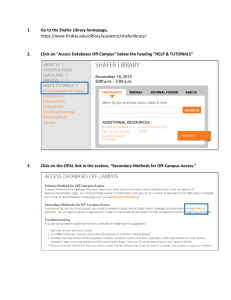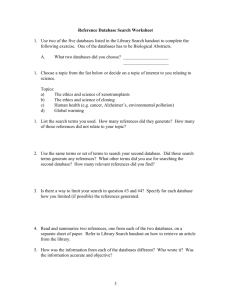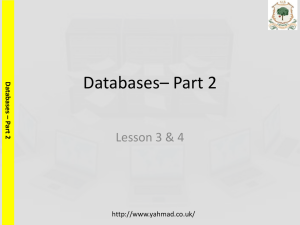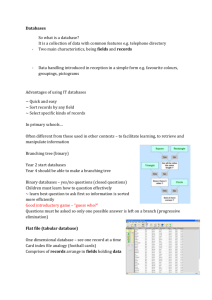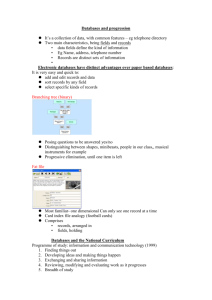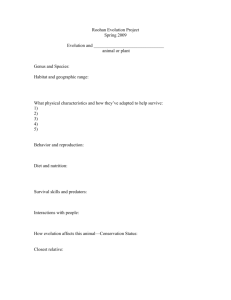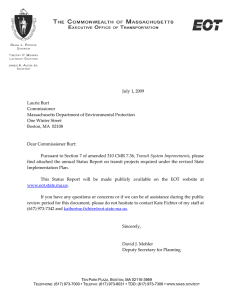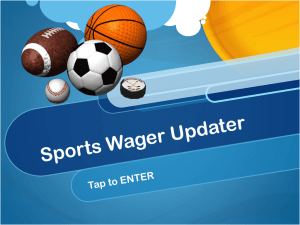PowerPoint Slides - University Library
advertisement
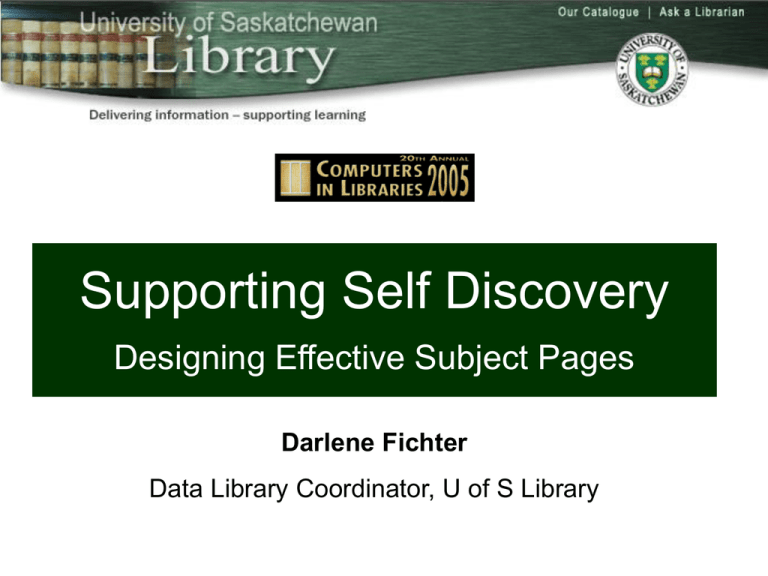
Supporting Self Discovery Designing Effective Subject Pages Darlene Fichter Data Library Coordinator, U of S Library Subject Pages The problem Defining our purpose Rounds of testing The results Articles and Databases by Topic Usability Studies in 2002 and 2003 showed that: 66% of the time our site failed to support the user. Only 33% could locate databases by topic Two useful full text databases on religion Many participants gave up after trying for 3 or more minutes. Find an article? Choose a database? Databases by Subject Subject Page Zoom In What We Learned Mental model User preferences “If I just knew a journal title that had articles on muscle strain …” “I don’t usually search for articles. My research assistants do.” Time for a Tune Up What could we do given our time and resources? – Evidence that our current site fails users – Widespread desire to change the databases page (but many different ideas about how) Staff survey to ask how library staff think user communities look for information How do People Look for Library Resources? Approaches Ranked by Importance: Approach Undergrad Grad Faculty database name 5 2 2 product name 6 5 6 subject/discipline 2 1 1 course 4 6 4 format - I need article, book 1 4 5 journal title 3 3 3 Subject Pages – Our Key Assumptions #1. Not designed for the expert user, but for the undergraduate who doesn’t know the system – Best Bets #2. ‘Just in time’ information, not ‘just in case’ – – Online access information (licensing restrictions) Designed for “recognition not recall” Assumptions #3 ‘Less is more’ – – Very brief information Reduce information pollution / cognitive overhead #4 ‘Some of these things are not like the others’ – – Similar things are grouped together (e.g. format, tutorials, librarian info) Use structure, layout, and position to organize information New Design Ideas from Rochester’s Course Pages and Washington Subject Page study http://www.lib.washington.edu/Usability/by-subj/ Zoom In Articles Best Bets Challenge: What elements/where? Full text Prototype Full text Date On the Left? Froogle? Maybe both? The Answer to Full Text Indicator Kept it on the left Real answer was a smarter interface – Open URL resolver Summary Clear definition of the purpose of the page or service Simple and easy to use is not always simple and easy to design Thank you Questions? Darlene Fichter University of Saskatchewan Libraries library.usask.ca/~fichter/

